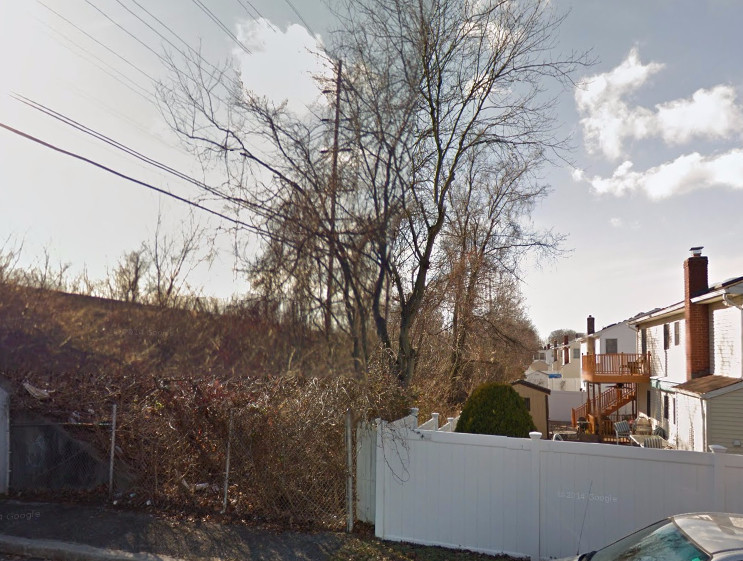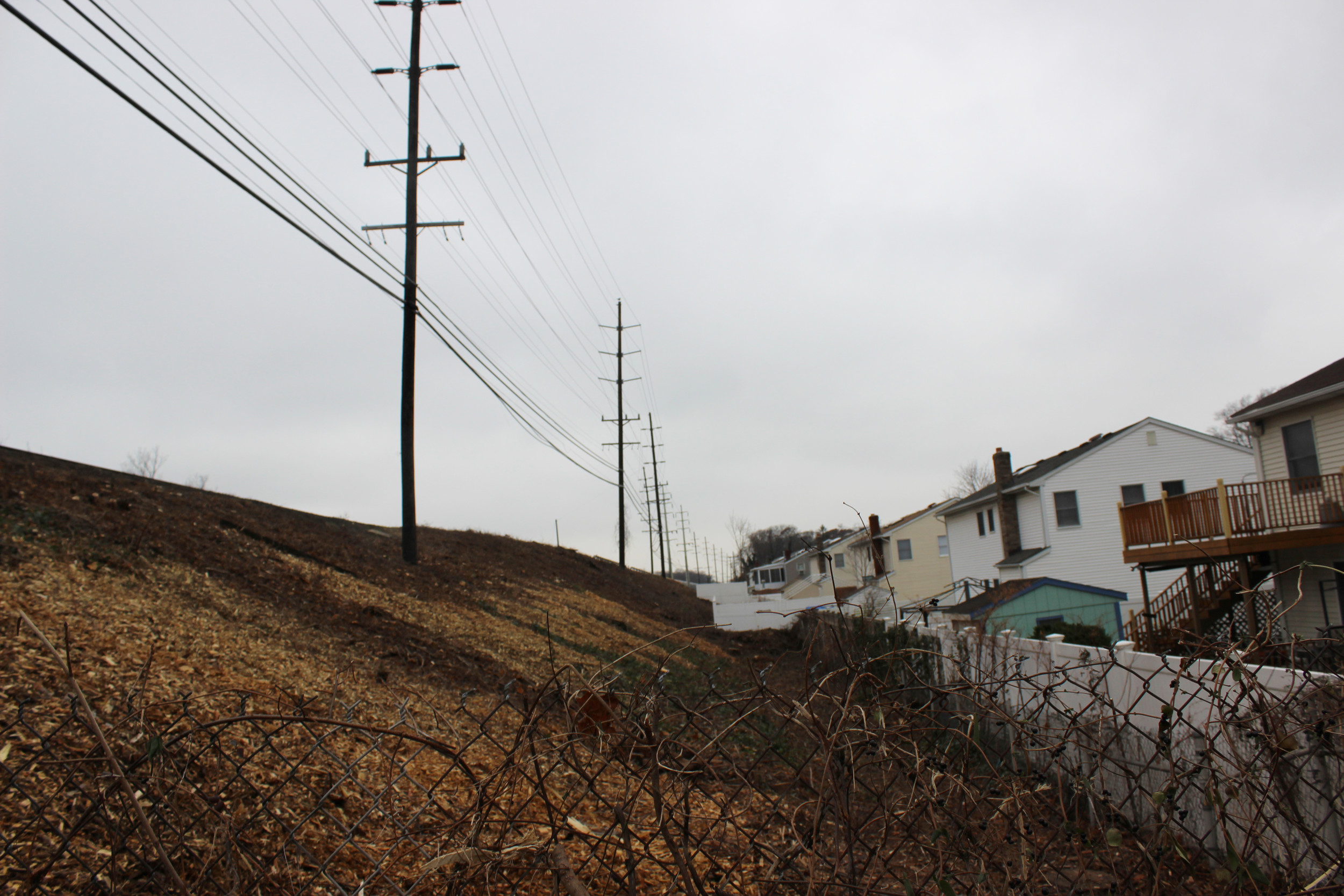Merrick residents, MTA tree feud may reach courts
Homeowners file notice of claim over tree-cutting
Residents of Bedford Avenue in Merrick have taken legal steps against the Long Island Rail Road after workers removed every tree from a thicket of foliage between their homes and the railroad tracks.
The work was done in November, and homeowners have since claimed that the absence of trees has amplified the noise of the trains, reduced residents’ privacy and increased the risk of erosion of the land below the train tracks.
Roughly 40 years ago, Donald Boland and the Boy Scouts of Troop 123 planted fir seedlings behind Bedford Avenue. Boland, now 84, spent 30 years in his Merrick home before moving to Massapequa. He said that he enjoyed the trees because they had become a natural barrier from the noise and sight of the trains. After hearing about the action taken by the LIRR, he said, “If I was there I’d be hopping mad.”
“I am unhappy in my own home,” said Femy Aziz, who has lived on Bedford Avenue with her husband, Hasnain, since 2002. Aziz said she can see people on trains glancing into her house as they go by, and there is now so much noise that the floor shakes. She recalled times when guests in her house have had to shout over the sound of a passing train.
Since asking their elected representatives for support and receiving a response from the Metropolitan Transportation Authority that left them less than satisfied, Aziz and another neighbor filed a notice of claim with Merrick attorney Charles Rosenblum on Feb. 17. In the notice, Rosenblum indicated that the residents would like to resolve the matter without going to court.
This latest step came after State Assemblyman Dave McDonough and County Legislator Steve Rhoads set up a meeting between the homeowners and Hector Garcia, an MTA representative. Garcia offered residents the opportunity to lease up to 15 feet of land in backyards that border LIRR property and plant trees on their own.
Neither Rhoads nor residents were satisfied with the proposal. “The offer does not fully address the scope of the problems created by the LIRR,” Rhoads wrote in a Dec. 31 letter to LIRR President Patrick Nowakowski, also requesting that the LIRR plant “two staggered rows of Leyland Cypress or other fast-growing evergreen trees on the railroad side of the 15-foot perimeter.”
Rhoads argued that, in the event of a storm, this would prevent soil erosion and runoff that could flood the Bedford Avenue houses. Furthermore, it would replace the natural noise and visual barrier that the MTA-LIRR had taken down. Leyland cypress are often grown as hedges to enhance privacy, and do not shed leaves, which would eliminate the risk of foliage landing on the tracks.
In her response, Susan McGowan, the LIRR’s general manager of public affairs for, explained that the MTA-LIRR conducts what she referred to as a vegetation management program to enhance the consistency and safety of train operations. “We regret your dissatisfaction with the reduction in the level of greenery,” McGowan wrote. “[However] we do not plan to restore vegetation beyond what recurs naturally over time.”
McGowan said that the MTA-LIRR did numerous assessments of the soil and found no cause for concern about potential erosion. The most recent assessment was conducted after a snowstorm in January, and found that the root structure of the removed vegetation was still intact.
Aziz said that she doesn’t doubt the company, but, she asked, “What happens when the roots die?”
The notice of claim is a standard first step before filing suit when a claimant seeks to hold a government agency responsible for personal damages, according to the state court system. The case will be reviewed, and, if it is approved, Aziz could follow with a lawsuit.
Asked why she thinks her neighbors are not taking legal action, Aziz said that they might doubt the leverage they have. “The MTA’s a very huge company, and we’re a very small number,” she said. “What’s the possibility of us gaining any strength in this?”
Aziz added, however, that she believes that the mediation offered by Rhoads and McDonough will bolster the chances of a satisfactory compromise. In the meantime, she and her neighbors have since developed a plan to start planting their own trees this month — the same Leyland cypress or evergreens that they originally asked the LIRR to supply.
An MTA representative said that he was unable to comment on the notice of claim filed by the residents.

 50.0°,
Overcast
50.0°,
Overcast 







